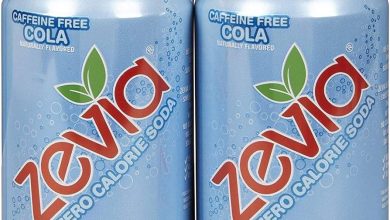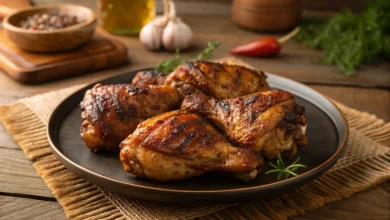Fresh Coriander (Cilantro) Leaves: Nutritional Benefits, Uses, and Culinary Tips
Coriander (Cilantro) Leaves (Raw)
Coriander, also known as cilantro, is a fragrant herb commonly used in culinary dishes across various cuisines. With its delicate, feathery green leaves, coriander brings both a fresh, citrusy flavor and an array of health benefits. Raw coriander leaves are a low-calorie food option, making them a great addition to salads, salsas, soups, and even smoothies. Not only does this herb enhance the taste of dishes, but it also provides a valuable source of essential nutrients.
Nutritional Information (per 100g)
| Nutrient | Amount |
|---|---|
| Energy | 23 kcal |
| Protein | 2.13 g |
| Total Fat | 0.52 g |
| Saturated Fat | 0.014 g |
| Carbohydrates | 3.67 g |
| Fiber | 2.8 g |
| Sugar | 0.87 g |
| Calcium | 67 mg |
| Iron | 1.77 mg |
| Magnesium | 26 mg |
| Phosphorus | 48 mg |
| Potassium | 521 mg |
| Sodium | 46 mg |
| Zinc | 0.5 mg |
| Copper | 0.225 mcg |
| Manganese | 0.426 mg |
| Selenium | 0.9 mcg |
| Vitamin C | 27 mg |
| Thiamin (Vitamin B1) | 0.067 mg |
| Riboflavin (Vitamin B2) | 0.162 mg |
| Niacin (Vitamin B3) | 1.114 mg |
| Vitamin B6 | 0.149 mg |
| Folate (Vitamin B9) | 62 mcg |
| Vitamin B12 | 0.0 mcg |
| Vitamin A | 337 mcg |
| Vitamin E | 2.5 mg |
| Vitamin D2 | 0.0 mcg |
Allergen Information:
Coriander is generally considered safe for most individuals and does not contain common allergens. However, it is important to note that some people may experience a mild allergic reaction to coriander, especially if they have a sensitivity to certain plants in the Apiaceae family (which includes carrots, celery, and parsley). If you have known allergies to plants in this family, consult a healthcare professional before consuming coriander.
Dietary Preferences:
- Vegan: Coriander is entirely plant-based, making it suitable for vegans.
- Vegetarian: This herb is also appropriate for vegetarians.
- Gluten-Free: Coriander leaves do not contain gluten, making them safe for those following a gluten-free diet.
- Low-Calorie: With only 23 calories per 100g, cilantro is a great addition to low-calorie meals.
- Low-Carb: With just 3.67g of carbs per 100g, coriander is ideal for low-carb diets such as keto.
- High in Fiber: Coriander is a good source of dietary fiber (2.8g per 100g), which is beneficial for digestion and maintaining gut health.
Health Benefits:
Coriander leaves are packed with a range of vitamins and minerals, such as vitamin C, calcium, iron, and potassium, all of which contribute to overall well-being. Vitamin C acts as an antioxidant, supporting immune function and promoting healthy skin, while calcium and iron play essential roles in bone health and oxygen transportation. Additionally, coriander contains antioxidants like quercetin, which may support the body in fighting free radicals.
Rich in fiber, coriander aids in digestion and may help regulate blood sugar levels. The potassium content supports cardiovascular health by helping to maintain healthy blood pressure levels.
Culinary Uses:
Coriander is a versatile herb used in a wide range of dishes, especially in Mexican, Indian, Middle Eastern, and Southeast Asian cuisines. Its raw leaves can be added as a garnish to tacos, curries, salads, or soups. It pairs well with other fresh herbs like mint and basil and complements both savory and sweet dishes. For a refreshing twist, add fresh cilantro to smoothies or juices.
Conclusion:
Coriander leaves are a flavorful and nutritious addition to any meal. Whether used to garnish dishes or incorporated into cooking, cilantro offers a burst of flavor along with a healthy dose of vitamins, minerals, and antioxidants. It is a perfect herb for those looking to add freshness and nutrition to their meals without the added calories.








